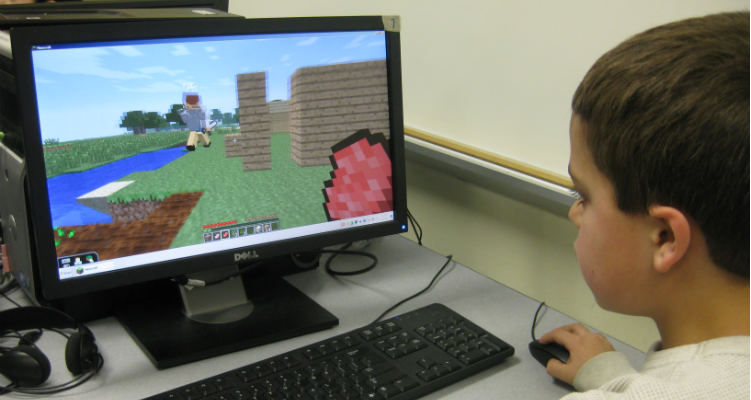Good news for gamers: New research shows kids who play video games, like Minecraft, may be healthier than those who watch TV.
We’ve seen numerous studies in recent years about the effects of too much screen time, including obesity, sleep problems, and behavioral issues. Though doctors recommend kids spend no more than two hours a day with screens, most kids exceed that limit.
But now, researchers are questioning whether all screen time—video games, computer time, and watching TV—are equally bad for kids.
The research comes from the University of Michigan, which looked at sixth graders, their snacking habits, and how much time they spent staring at screens. The researchers found that the kids who watched a lot of TV “were more likely to eat junk food and drink soda than their peers who spent the same amount of time on the computer or playing video games…”
It may be that some media use, like passively watching TV, lends itself better to mindless snacking than actively playing a game that requires use of a gamepad or keyboard and mouse.
Still, all the kids who spent 2-6 hours watching TV or playing video games reported snacking more, were heavier, and had higher blood pressure than the kids who logged less than an hour a day of screen time.
This highlights the fact that while video games may be a healthier option, it’s still important for parents to teach kids healthy eating habits, limit screen time, and make sure they spend plenty of time being active.
Benefits of video games
Obviously, video games are no match health-wise for running around outside. Still, in addition to being better for kids’ bodies than watching television, games may also be better for their minds.
A new study from the American Psychological Association (APA) indicates that playing video games may provide many more benefits than previously thought, including “spatial navigation, reasoning, memory and perception.” Boosts to problem-solving skills and creativity in kids who played video games were also noted.
Studies have also shown that some games can have long-term benefits, including improving players’ intelligence and memory. And of course, the incredibly popular Minecraft game has hooked thousands of kids, and excited educators with its abundant learning opportunities. The open-ended nature of Minecraft allows for endless creativity and problem-solving, and lends itself well to building academic skills like math, science, and programming.
It seems that when it comes to screen time, we need to ask “how much,” as well as “what kind”?
Research from the American Academy of Pediatrics (AAP) has shown that there’s a big difference between screen time for entertainment, and screen time for learning. With this new research, entertainment screen time could be broken down even further, with clear benefits for different kinds of media over others.
While it’s still very important for parents to put a time limit on media use and encourage active play, when choosing between television and video games, the benefits of gaming seem to make it the clear winner.





































